“We need to read about the past in order to understand the present. People without a grasp of history are like a person without a memory. Many of the current beliefs in our society are properly grasped only when we see how they have emerged. A knowledge of history will help us to understand better both ourselves and those with whom we might disagree.” — Historian Tony Lane [1]
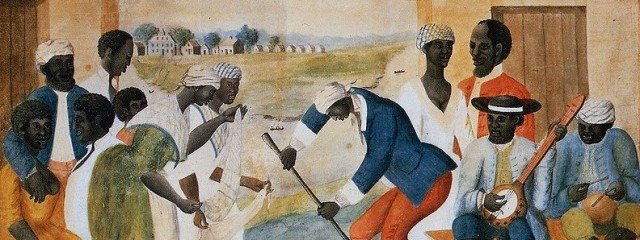

Eli Faber declares that “When compared with their non-Jewish contemporaries, [the Jews’] involvement [in the slave trade] was one that had little impact.”[2] Here Faber was in denial.
At the same time, he goes on the following pages to argue that to deny the Jewish participation in the slave trade is not a historically reliable position, for there were too many examples of that.[3] Yet even admitting this small dose of truth cost Faber his academic career.
Saul S. Friedman certainly could not deny that many Jews were involved in the slave trade, but he writes, “Any trace of Jewish ancestry is sufficient for an individual to be identified as a Jew and an oppressor. It is a familiar and illegitimate practice of anti-Semites.”[4]
What Friedman fails to explain is that Jews were involved in the business for centuries and that this could hardly be an accident. Friedman simply cannot be a serious scholar and should not be taken seriously here.
Friedman insinuates that the Talmud actually discourages slavery and quotes Salo Baron to the effect that “A whole system of law was evolved to eliminate every conceivable abuse [of slavery] and, finally, to abolish the entire institution.”[5] To abolish the entire institution?
With all due respect to Friedman, this is complete nonsense. Why was it that, as we shall see in a moment, rabbinic Judaism resisted the abolition of slavery even in the nineteenth century? And why is it that Friedman does not tell us the particular passages of the Talmud which lays out this abolition plan?
Moreover, why doesn’t Friedman tell us other passages of the Talmud which exegetically declares that Christ, Balaam, and Titus are burning in hell in excrement?[6]
Friedman is simply a joke, and his attempt to refute Werner Sombart’s Jews and Modern Capitalism is reprehensible. He writes that “The Rothschilds hardly represented the Jews of their own age…”[7] (We will come back to the Rothschilds in the summer.)
Jews who were involved in the slave trade were largely from the South of the United States, most specifically from Charleston (formerly Charles Town). Jewish historian Howard M. Sachar writes, “A major producer of rice and indigo, a gateway to the West Indian trade, the town by the late eighteenth century encompassed a mixed community of two hundred Sephardic and Ashkenazic Jews, the second largest Jewish community in North America. Most were small tradesmen, but among them also appeared plantation owners, slave dealers, and importer-exporters.”[8]
Therefore, “Given this history, it is perhaps not surprising that in the United States, Jews in the South were typically reluctant participants in the civil rights movement…Though there were some exceptions, the vast majority of Southern Jews did not involve themselves in the civil rights movement even after the struggle intensified in the 1950s and 1960s.”[9]
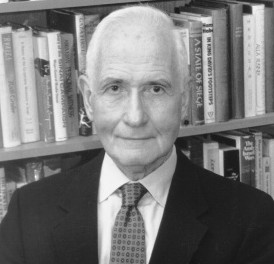
The question, then, is this: Why was there a cadre of Jews in the civil rights movement during the 1960s? Were they really trying to help the blacks? We shall return to this point in the summer.
Jews like Isaiah who had thirty-five slaves and Moses and Judah P. Benjamin who had one hundred forty “were ready during the Civil War to defend it to the death.”[10]
As a result, there was “No ‘special relationship’ between blacks and Jews, no universalist ethic, led Jews, North or South, to challenge this violation of human rights.”[11]
It is with pain that Jewish historian Solomon Grayzel writes:
“Some Jewish residents in the South refrained from slave-holding, and others, like Judah Touro, took care to free their slaves. But the majority of southern Jews had become so much a part of the prevailing social and economic system that there was little distinction between them and their Christian neighbors.”[12]
As examples, Grayzel mentions Senator David Yulee of Florida who had a plantation and defended the slave system, and Rabbi Morris J. Raphall of New York, who wrote sermons arguing that “slavery was an institution blessed by God.”[13] According to Raphall, not only was this institution blessed by God, but its abolition is tantamount to blasphemy.[14]
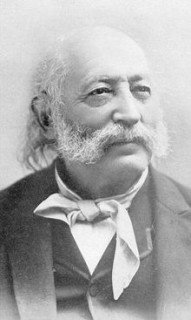
Rabbi Isaac M. Wise also attacked the abolition movement, which he saw as a purely Christian enterprise:
“Who in the world could act worse, more extravagant, and reckless in this crisis than Protestant priests did?…
The Protestant priests threw the firebrand of abolitionism into the very heart of this country…Do you know who made Jefferson Davis and the rebellion? The priests did, and their whinners and howlers in the press.”[15]
During the Civil War era, “Jews who would not advocate equal rights for blacks demanded equal treatment before the law for themselves. Protestants who wanted equal rights for slaves would deny them to Jews.”[16]
Grayzel writes that “The majority of Jews and the majority of rabbis were unmistakably opposed to human slavery.”[17] Grayzel mentions Rabbi David Einhorn, Michael Heilprin, and Sabato Morais as examples.[18]
It is true that some rabbis and Jews opposed slavery, but to say that the vast majority of them did oppose it, as we shall see, is an exaggeration.
Sachar, while acknowledging that some Jews actually opposed slavery, noted that “militant abolitionism was not characteristic of the Jewish majority.”[19]
When rabbi Einhorn for example preached sermons against slavery, “a secessionist mob eventually destroyed his congregational newspaper and forced him to leave town.”[20]
At the same time, Rabbi Isaac M. Wise would use words such as “fanatics,” “demagogues,” “radicals,” and even “red Republicans and atheists” to describe the abolitionists. Likewise, Rabbi Morris Raphall of New York would use the Old Testament to rationalize slavery.[21]
Therefore, it would hardly be a surprise to notice that Jews from the South—most specifically in South Carolina, which one historian declares to be “the home to the largest Jewish community in the United States at one time”—contributed next to nothing to the abolition of slavery.[22]

Sachar writes that there is not a single record “of any Southern rabbi expressing criticism of slavery. Several of them also owned slaves.”[23]
In the process of time, however, numerous Jews ended up freeing their slaves out of goodwill. Isaiah Isaacs, for example, ended up freeing his slaves in 1806.[24]
At the same time, many other Jews were cruel to their slaves. For example, “In 1798, Polly, a mulatto, was tried for taking two dollars’ worth of white sugar from Benjamin Solomon’s home. She received five lashes and her left hand was branded.”[25]
In 1800, Joseph Darmstadt likewise gave his slave David Clayton 39 lashes for stealing 50 shillings’ worth of beeswax.[26]
After emancipation, Southern Jews like Solomon Cohen saw that slavery was indeed somewhat profitable. Friedman tells us that Cohen, though he “lost a son fighting for the Confederacy…never yielded on the slavery issue.”
Cohen wrote, “I believe that the institution [slavery] was refining and civilizing to the whites, giving them an elevation of sentiment and ease and dignity of manners only attainable in societies under the restraining influence of a privileged class and, at the same time, the only human institution that could elevate the Negro from barbarism and develop the small amount of intellect with which he is endowed.”[27]
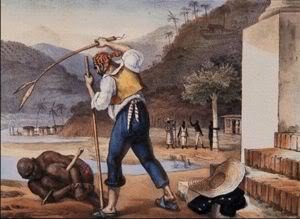
Rabbi Isaac Mayer Wise, who was of “of generally liberal sentiment and active in Reform Judaism,” actively and “energetically defended Black slavery.”
Having called Blacks “savages” and “beasts of burden,” Wise, who perhaps realized that blacks would eventually be free if the North prevailed, was a staunch opponent of Abraham Lincoln. Wise referred to Lincoln as an “imbecile.”[28] Many Northern Jews, however, supported Lincoln.[29]
The issue of slavery was completely different in the South. Sachar tells us that “even Jews who did not own slaves saw little to criticize in the ‘peculiar institution.’ Isaac Harby, a Charleston journalist and playwright (a pioneer advocate of reform in Jewish synagogue practices), lashed out against ‘the abolitionist society and its secret branches.’
Jacob N. Cardozo, editor, and political economist insisted that ‘slavery brought not only great wealth to the South, but to the slaves a greater share of its enjoyment than in many regions where the relationship between employer and employee was based on wages.’”<[30] Edwin De Leon likewise wrote prolifically defending slavery.[31]
Sachar writes that “The South’s four million black slaves were the Jews’ lightning rod. Indeed, possibly a quarter of the region’s fifteen or twenty thousand Jews were themselves, slave owners. Some Jews even were professional slave dealers.”[32]
Harriet Beecher Stowe, quoting a letter from Gamaliel Bailey that made reference to the Davis family of Petersburg, Virginia, noted that some blacks were being treated like cattle.
She wrote:
“The Davises…are the great slave-traders. They are Jews [who] came to that place many years ago as poor peddlers…These men are always in the market, giving the highest price for slaves. During the summer and fall, they buy them up at low prices, trim, shave, wash them, fatten them so that they may look sleek, and sell them to great profit.”[33]

Apart from the issues slavery brought up, there was an underlying prejudice against blacks throughout the South, a prejudice the Jewish population embraced.
For example, in 1896 The Jewish South had an editorial which read in part that “Twenty-five years of education resulted in making the colored women more immoral and the men more trifling…”[34]
Lindemann notes that “There are even examples of Jewish participation in the Ku Klux Klan,”[35] such as one of leading Jewish financiers Bernard Baruch.[36]
In 1906, “a Jewish member of the Carnegie Library Board in Atlanta, Georgia, voted with the majority to reject a petition to admit Blacks to the library. These were not isolated incidents.”[37]
For many Jews like Jacob N. Cardozo, this prejudice was religiously based, and the Talmud was commonly relied upon to defend slavery. Therefore, “there was not a single abolitionist among the Jews of the South.”[38]
Jacob Rader Marcus writes that “Jews in the South knew full well that there was a slave problem, but like the people about them, they did nothing to come to grips with this evil.”[39]
For example, “Rachel Mordecai Lazarus was fully aware of the evils of slavery, but, after a fashion, defended this institution in her correspondence with Maria Edgeworth. Rachel contended that the black under chattel slavery was no worse off than the Europeans who suffered under wage slavery.”[40]
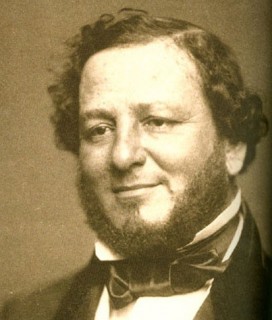
When Rabbi David Einhorn criticized slavery as an evil institution, he had to flee to Philadelphia with his family in order to escape mob violence.<[41] The Jewish voice in defense of slavery certainly was too strong.
When Daniel Webster argued against slavery, it was Judah P. Benjamin, a Senator from Louisiana, who defended it.[42]
For those reasons, many blacks in the South had negative perceptions of Jews, and one journalist declared in 1946 that many blacks in the South had a “grim satisfaction from the Nazi persecution of the Jews.
They contend that their local Jews have been indistinguishable from the ‘crackers’ in their attitude toward Negroes.”[43]
Anti-Jewish resistance became a serious issue during the Civil War era. Many Jews were singled out as “extortionists, counterfeiters, blockade-runners.”<[44] In Richmond, Virginia, a historian by the name of J.B. Jones, who had made close Jewish friends, wrote that “illicit trade has depleted the country and placed us at the feet of Jew extortioners.”[45]
A magazine named Southern Punch noted, “Who are our opponents at the present time?… The dirty greasy Jew peddler [sic] who might be seen, with a pack on his back, a year or two since, bowing and cringing even to the Negro servants, now struts by with the air of a millionaire.”
The Richmond Examiner pronounced similar charges, saying in part that “Every auction room is packed with greasy Jews…”[46]
The Examiner retracted from their statement because they made no distinction between native Jews and immigrant Jews, but the anti-Jewish spirit was still there.
In 1862, as the Union Army was closing in, “rumors circulated that traders were passing counterfeit money. Soon the culprits were deemed to be the three resident Jewish families, as well as occasional itinerant Jewish traders. A mob of irate citizens then passed a ‘resolution’ giving the local Jews ten days’ notice of expulsion.”[47]
Many Northern Jews were singled out as well. James Gordon Bennett of the New York Tribune identified them as “speculators in gold…engaged in destroying the national credit…speculating in disasters.”[48]
As is to be expected, there were exceptions to the prevalent Jewish-black prejudice, cases where Jews acted out of charity, compassion, and genuine love for their slaves. Jacob Rader Marcus notes that “some bondsmen were emancipated during the lifetime of the master, or by testament, as a reward for loyal service, for care during illness, for friendship and devotion.”[49]
Some Negroes “were to be accorded many of the courtesies enjoyed by freedmen and freedwomen. Jacob I. Cohen and Isaiah Isaacs, the well-known Richmond merchants, partners for years, both manumitted slaves in their wills. Isaacs stipulated that the men and women to be freed were to receive a generous supply of clothing; Cohen left money to these servants but specified that if any of them preferred to remain in bondage, they were free to choose their own masters.”[50]
We are told that New York lawyer Sampson Simson was very sympathetic to blacks, as well as Leon Godchaux, a clothing manufacturer and sugar planter in the 1840s.<[51] David Brandon “asked his family to be kind to his servant, a free black, the ‘best friend I ever had.’”[52]
Friedman recounts the case of “the Friedman brothers of Tuscumbia, Georgia,” who “bought a slave named Peter Still, without telling his master that their real purpose was to liberate him.” Ernestine Louise Rose, an orator, was another individual who was in the anti-slavery camp.[53]
Marcus, however, notes that there were other Jews who obviously mistreated their slaves.[54]
Feuerlicht notes that “A few Jews freed their slaves in their wills; many did not. A few Jews freed their slaves before they died. One Jew killed a slave. Others brought their slaves before the law to be harshly punished for trivial offenses.”[55]
A number of Northern Jews joined the abolition organization such as the Pennsylvania Society for Promoting the Abolition of Slavery (or the Pennsylvania Abolition Society) way back in 1774,[56] but it was after Christians such as the Quakers founded the organization as far back as 1688.[57]

But the Quaker movement, or Society of Friends, with the spirit of anti-slavery, was largely founded around 1652 with George Fox as the leader.
The Quakers rejected the slave trade precisely because they saw it as wicked and because it largely promoted “corruption” and “anti-Christian behavior,” and because the slave trade itself was in “direct violation of the Gospel-rule.”[58]
In 1693, the Quakers wrote An Exhortation and Cautions to Friends Concerning Buying or Keeping Negroes, which sought to refute the prevailing idea that blacks were by nature slaves.
The Quakers constantly maintained the Christian teaching that not only are Negroes fellow human beings but that God had a redeeming purpose for them as well as for all humanity.
By the 1750s, one of the main activists within that movement was Anthony Benezet, who established schools for the Negroes in Philadelphia. Benezet even made the case that if Britain would not help in abolishing the slave trade, she would bring the wrath of God upon her.[59]
Other non-Quaker groups began to assimilate into that frame of thinking.<[60] Isidor Busch for example was a Northern Jew who became “one of the most dynamic abolitionists in the Midwest.”
Polish-born Michael Helprin was another one.<[61] Rabbis Gustav Gottheil and David Einborn committed themselves to the abolitionist ideals.<[62] The Quaker movement had deteriorated in subsequent generations and by the 1950s they got involved in social engineering. (See E. Michael Jones’ The Slaughter of Cities: Urban Renewal as Ethnic Cleansing).
Yet even then, Sachar, as we have already said, notes that “militant abolitionism was not characteristic of the Jewish majority….Neither were they prepared to identify their religious views with the anti-slavery movement. Indeed, their spiritual leadership offered them little guidance beyond circumspection.”[63]

Many of the Jews who believed strongly in the abolition movement were not Orthodox Jews but Reform Jews. David Einhorn of Baltimore talked about his belief “in one humanity, all of whose members, being of the same and early origin, possess alike nobility of birth and a claim to equal rights, equal laws, and an equal share of happiness.”[64]
Yet at the same time, Orthodox Rabbi Morris J. Raphall of B’nai Jeshurum Synagogue “was a virulent critic of both abolitionism and Reform Judaism.” For Raphall, the abolitionists were blasphemers. Yet Raphall was criticized in the same spirit by Rabby Michael Helprin.[65]
Even in ancient times, rabbis had “a low opinion of slaves” and “they did nothing to eradicate slavery…”[66] In fact, when well-known slave-dealer Moses Lopez arrived in America from Portugal, he invited his brother, Duartez, to join him.
One of the first things that Duartez did as soon as he got established was to openly cling to his “ancestral faith. Duarte underwent the painful ordeal of circumcision and adopted the name Aaron. His wife, Anna, became Abigail…Aaron (Duarte) Lopeze then remarried his wife in a Jewish ceremony. Thereafter, he wasted little time in setting out as a merchant shipper.”[67]
In the end, it must be said that all wicked behaviors must be placed at the feet of sinful men. It is quite ridiculous to put a burden on our fellow Jews and declare that they should all be responsible for nineteenth-century slavery.
At the same time, modern opponents of Christianity and Western culture at large need to take some responsibility. They simply cannot continue to blame the West for all the evils of slavery and then turn a blind eye to the breadth of the slave trade, particularly as it existed in Africa, where blacks were being sold by their own countrymen.
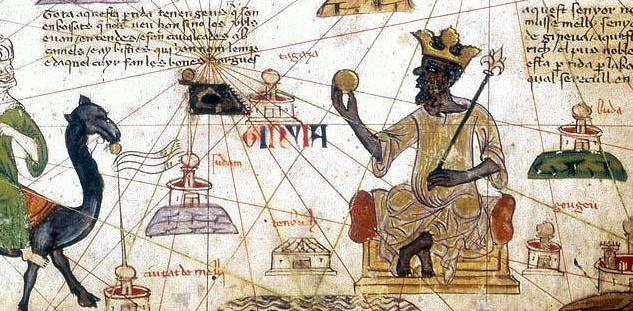
It is absolutely futile, historically irresponsible, and morally repugnant to use the historical data in order to incite hatred on another group of people who are just as fallible as anyone else.
From a historical perspective, if individuals are going to get angry, they have to look at the history of slavery beyond stage one. As we have already documented, Africa was selling blacks by the thousands. As the celebrated historian John Thornton consistently documents, slavery was not foreign to Africa at all.
Many places in central and West Africa were built upon the unchallenged and unchallengeable premise that human beings are to be used as cattle.
As Thornton puts it, “The slaves, many of whom occupied estates around the capital [of Mbanza Kongo], provided Kongo with both the wealth and the demographic resources to centralize.
As early as 1526, documents from Kongo show that the provinces (constituent states) were in the hands of royally appointed people (mostly kinsmen), and by the mid-seventeenth century local power and election were regarded more as a curse than a blessing.”[68]
Other parts of Africa were “centralized” due to the massive amount of slaves who were constituted as major components of those regions. Places like Lagos increased in income largely because of the slave trades.[69]
This in turn expanded Lagos’ “economic, political, and military power both within the kingdom and in relation to other states in the region.”[70]
In some parts of Africa, “the use of slaves may have helped rulers develop more autocratic systems of government.” The eastern Gold Coast for instance “had an abundance of slaves.” In another region, historian Sierra Leone notes that “the income that rulers obtained from their slaves was their only steady source of income.”[71]
In general, “slaves could be found in all parts of Atlantic Africa, performing all sorts of duties. When Europeans came to Africa and offered to buy slaves, it is hardly surprising that they were almost immediately accepted. Not only were slaves found widely in Africa, but the area had a well-developed slave trade, as evidenced by the numbers of slaves in private hands.”[72]
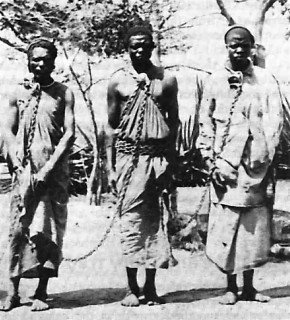
Moreover, the slave trade was not “brought in from outside and functioning as some sort of autonomous factor in African history.
Instead, it grew out of and was rationalized by the African societies who participated in it and had complete control over it until the slaves were loaded onto European ships and transfer to Atlantic societies.”[73]
Not only was African slavery larger in scope than what is imagined—most specifically in central Africa[74]—but it was “rooted in deep-seated legal and institutional structures of African societies, and it functioned quite differently from the way it functioned in European societies.”[75]
Thornton argues that in many places, slaves in Africa were no different than European slaves in maintaining some decent social positions, and this has led many historians to declare that in some instances, slaves “were well treated, or at least better treated than European slaves.”[76]
This however cannot be said about the overarching slavery movement that was widespread in the continent.
More importantly, the international slave trade would have been almost impossible without the cooperation of the African rulers, and Africans were not taken out of Africa without consensual arrangement with the African rulers,[77] as is widely taught in popular and sensational books by Afrocentric writers such as Molefi Kete Asante of Temple University.
Lessons from History
Studying history, as we are now beginning to see, sometimes is not a pleasant enterprise. It can bring to light painful wounds and memories. Yet it is largely through a study of history that the present can make more sense.
Spanish philosopher and writer George Santayana wrote at the dawn of the twentieth century, “Those who cannot remember the past are condemned to repeat it….This is the condition of children and barbarians, in whom instinct has learned nothing from experience.”[78]
The Zionist mob in Hollywood has tried very hard to make us forget about the past by producing movies that explicitly make the point that slavery should be placed at the feet of only Europeans.
But it must be emphasized that the root of the story will not be found in history alone, but also in the conflict between two theological systems: Christianity and Rabbinic Judaism.
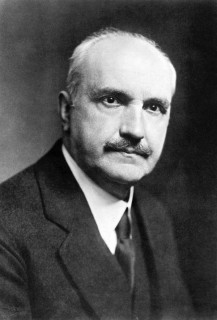
That is where the issue lies, not with people. People who try to understand the historical conflict without a grasp of historical theology will generally have a skewed view of what the issue is all about.
Those who followed the theological teachings of Rabbinic Judaism routinely began to persecute Christians in the first century, and Paul lamented that those people “have persecuted us, and they please not God and are contrary to all men…” (1 Thessalonians 2:13).
The evils that those men have produced over the centuries are, dare we repeat it, “contrary to all men.” And those evils are still with us today.
By the time the book of Revelation was written, Rabbinic Judaism theologically and exegetically became the synagogue of Satan, the spiritual and diabolical cell from which all significant revolutionary activity springs—from the first century to the twenty-first.
Western culture and people of reason need to confront this diabolical cell because it has produced subversive and revolutionary activities which have been bad for the West and indeed for all mankind. Those activities always promise heaven on earth but deliver the opposite.
Israel Is an Existential Threat in the Middle East
What is more interesting is that when one revolutionary activity died out, another one sprung up with much political and ideological force. When Bolshevism died out, then neo conservativism came into the scene which, as we have seen in a previous article, is the reincarnation of Stalinism, Leninism, and Trotskyism in a new garb.
The Bolshevik Revolution eventually blessed the West with at least one hundred million deaths.[79] Neoconservativism recently blessed the West with millions of dead bodies in Iraq, Afghanistan, and Libya. Linda B. Bilmes of Harvard and Michael D. Intriligator of the University of California have presented the case that the U.S. is now patrolling 74 countries, a burden that the neoconservatives have largely placed on America.
The movement sent a six-trillion dollar bill to the average American.[80] And this is not the end of the story, as neoconservative hawks are making their way to attacking Iran.

Pillar R. Pillar, a 28-year veteran of the CIA and a professor at Georgetown University, recently declared that Israel, not Iran, is the only country in the Middle East that is posing an existential threat to other countries in the same region.
Pillar added, “Nuclear weapons are perceived where they don’t exist, and ignored where they do.”[81]
If Pillar’s words are too harsh, scholars such as Anthony H. Cordesman, Bryan Gold, Sam Kahzai, and Bradley Bosserman have written a meticulously well-researched report saying that Israel has not only updated their missiles but that those missiles can target virtually any densely populated area in the Muslim world.
Who in his right mind would believe that Iran has such a capability? How did Iran become an existential threat when the real existential threat is obviously manipulating America and much of the Western world like puppets?
Israel does not even wait for international law to attack a sovereign country.
Just a few days ago, Israel attacked Syria. They did the same thing last January. The pathetic rationale on both occasions is that Hezbollah was going to send chemical weapons to Syria.[82]
Assad has used chemical weapons. In fact, the evidence shows that it was the rebels/terrorists, not Assad, who have used chemical weapons. However, neocons such as Max’s book were mobilized saying that if Obama does not attack Iran, America will lose its credibility! Double agent Elliott Abrams was even saying that Obama was bluffing about his “red line.”
about the situation in Syria. The Zionist regime in Israel could not wait and violated not only international law but the Western culture in attacking a sovereign nation. As expected, the United States defended Israel. President Obama declared right after the attack,
“The Israelis justifiably have to guard against the transfer of advanced weaponry to terrorist organizations like Hezbollah.”
Can Iran attack a sovereign nation as Israel does? Again, which country is really an existential threat in the Middle East?
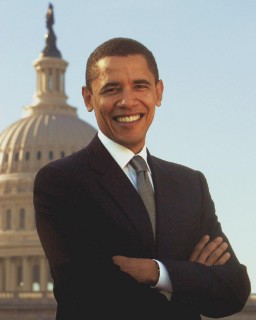
More recently, the Wall Street Journal has declared that “The Pentagon has beefed up its ‘Bunker Buster’ bomb, designed to destroy Iran’s Fordow nuclear facility.”[83] The bomb weighs 30,000 pounds.[84]
Former CIA analyst Ray McGovern thinks that Israel wanted to attack Iran not because Iran would pose a challenge to the West (Israel has hundreds of warheads) but because “since 1967 the Israelis have been able to pretty much do whatever they want in [the] area”[85] of nuclear warheads. McGovern added that Israel wants to “have Iran bloodied the same way we did to Iraq…”[86]
Iran does not have nuclear warheads, but it is an existential threat; Israel does have hundreds of nuclear warheads, and it is not an existential threat—even though at least one Israeli military historian made it clear that those warheads have the potential to blow up major cities in the West.
Israel just recently “inaugurated its fifth nuclear-capable Dolphin-class submarine,”<[87] but it is Iran that is posing problems in the Middle East.
How does that logic work? How can a small country like Israel get away with so many lies? Retired Colonel and Former chief of staff to Colin Powell Lawrence Wilkerson recently declared that Israel could have easily cooked up the statement that Syria had used chemical weapons.
Surely this is not far-fetched. Right after Obama went to Israel and declared that “the use of chemical weapons is a game-changer” in Syria, Israel “produces” the evidence within days!
And while Israel continues to push the U.S. into a battle with Syria and Iran, suicide rates among middle-aged Americans have risen at an astronomical rate largely because they simply have lost hope for a better economy. Decent Americans simply have to rise up and say no more support for the Zionist regime.
The Neoconservative World
We have already seen that the Syrian rebels are terrorists. Fox News has recently produced an article written by John Rosenthal of NewsMax saying that the U.S. hired an Al-Qaeda-linked group in Benghazi, Libya, where four Americans were killed.
And the Obama administration has been trying to come up with all kinds of pathetic rationalizations in order to support those terrorists.[88] As Damon Linker of The Week points out, “America should not intervene in Syria. But a pair of presidential screw-ups may force us to.”[89]

In the neoconservative world, what is logical becomes irrational and what is rational illogical.
In that messianic world, terrorism is bad, but supporting terrorist groups such as the Syrian rebels is good because their ideology is congruent with the Zionist dream.
In other words, If terrorist groups support Israel and make an alliance with the Zionist regime, then terrorism is no longer terrorism.
And when supporting terrorism becomes a hot button for Israel and the Zionist dream, those same neocons try to tell America and much of the West that we need to put the support for those terrorists on hold.[90]
Yet even at the beginning of this month, the vast majority of Americans do not want the U.S. to get involved in Syria or North Korea.[91] The poll also declares that America should get involved if Assad uses chemical weapons.[92]
The Zionist machine in Israel, of course, was quick to provide the world with the false information that Assad used chemical weapons.
In other words, the Zionists were implicitly inciting Americans to get involved in Syria, even though they deny this fact.93]
The revolutionary spirit never rested. While precious Americans are still trapped in a wrecked economy,[94] the spirit continues to hover over the political landscape—and this time Sarah Palin was its next victim.
[warning: it turned out that the article from which the Palin statement came was a satirical enterprise, and Palin did not make an authoritative statement about the Boston bombings. A reader has pointed this out. Thank you so much!]
Right after the Boston bombings, Palin declared, “We don’t know everything about these suspects yet. But we know they were Muslims from the Czech Republic. I betcha I speak for a lot of Americans when I say I want to go over there right now and start teaching those folks a lesson.
And let’s not stop at the Czech Republic, let’s go after the other Arab countries too. The Arabians need to learn that they can’t keep comin’ over here and blowing stuff up. Let’s set off a couple of nukes in Islamabad, burn down Prague, then bomb the heck out of Tehran. We need to show them that we mean business.”[95]
Hosts Steve Doocy and Gretchen Carlson, while agreeing with Palin, declared, “Islamabad is the capital of Pakistan, which isn’t Arab and Tehran is the capital of Iran, which is predominantly Persian. But I do see your point. Also, the Czech Republic isn’t really an Arab or even Muslim country, I don’t think, but otherwise what you’re saying makes a lot of sense. I think most Americans wish Obama would step up and lead on this one.”
Palin did not see that point at all. She responded, “Steve, that’s probably one of the most ignorant things I’ve ever heard. How is the Czech Republic not a Muslim country? You saw those brothers, they were Islamic and they were Chechen!”[96]

This is the brilliance of a lady who was amassing one million dollars per year as a commentator on Fox News![97]
In other words, Palin got paid $15.85 per word—words such as “heck,” “you betcha,” “right on!,” etc.[98] By 2010, Palin was already making $12 million.[99]
Palin, in a nutshell, is a puppet. She would say just about any idiotic statement to get that almighty dollar.
If this sounds harsh, keep in mind that Palin’s aid during her vice-presidential campaign was none other than Jewish neoconservative Randy Scheunemann, who received $150,000 from George Soros.[100]
And we all know that Soros is not even a Republican.[101] Soros even put out more than $23 million to defeat Bush.
In other words, both Democrats and Republicans are concentric circles when it comes to giving allegiance to Jewish billionaires and supporting Israel. As E. Michael Jones put it some years ago, “when I hear an American talk about the dangers of ‘Islamofascism,’ I think it’s an infallible sign that I am in the presence of either a propagandist, an intellectual coward or a useful idiot.”[102]
Surely Sarah Palin fits at least one of those categories.
The End…….
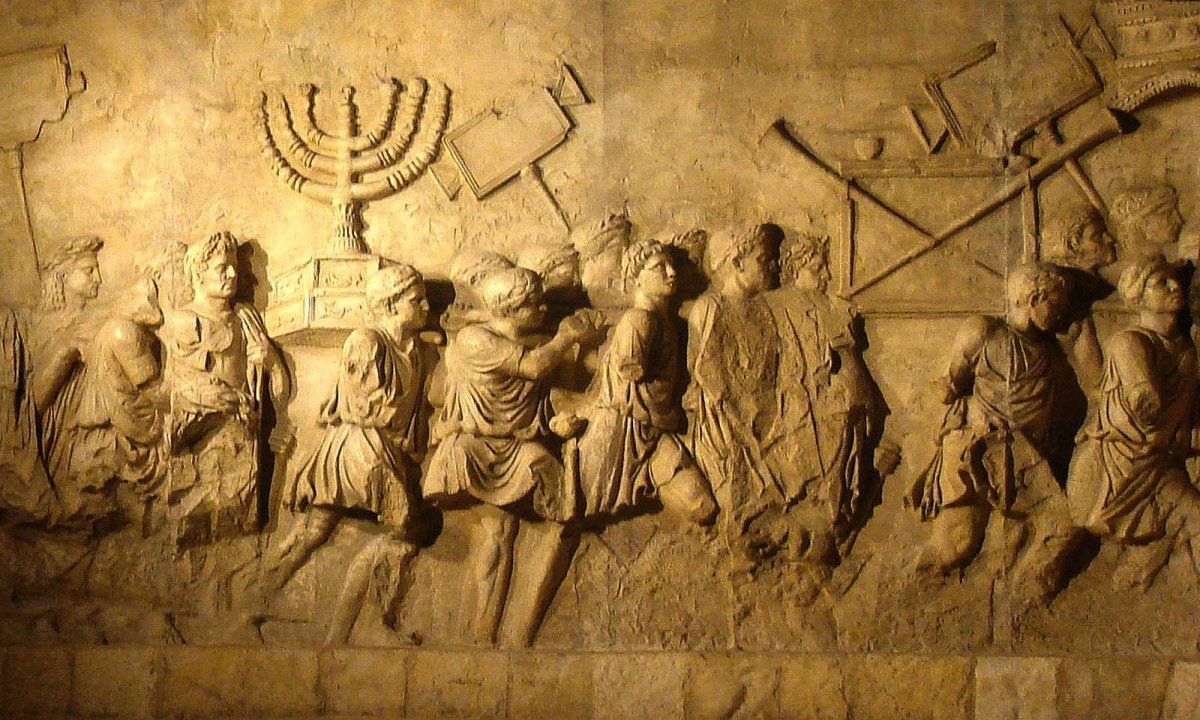 Source
Source
[1] Tony Lane, A Concise History of Christian Thought (Grand Rapids: Baker Academic, 2006), 1.
[2] Eli Faber, Jews, Slaves, and the Slave Trade: Setting the Record Straight (New York: New York University Press, 1998), 1.
[3] Ibid., 2-6. Faber however seems to be more honest than other historians who completely ignore this issue for ideological purposes.
[4] Saul S. Friedman, Jews and the American Slave Trade (Piscataway, NJ: Transaction Publishers, 2000), 33.
[6] For further study, see for example Peter Schaffer, Jesus in the Talmud (Princeton: Princeton University Press, 2007).
[9] Kevin MacDonald, Cultural Insurrections: Essays on Western Civilization, Jewish Influence, and Anti-Semitism (GA: The Occidental Press, 2007), 208, 209; see also Friedman, What Went Wrong?, 21.
[10] Friedman, What Went Wrong?, 21.
[12] Grayzel, History of the Jews, 628.
[13] Ibid., 628; see also Feuerlicht, 74-75.
[17] Grayzel, History of the Jews, 628.
[22] See for example Stephen Isaacs, Jews and American Politics (New York: Doubleday, 1974), 180.
[24] Reiss, The Jews in Colonial America, 89.
[27] Friedman, What Went Wrong?, 22; see also Sachar, 73.
[28] Lindemann, The Jew Accused, 210.
[29] Ibid., 210; see also Lee Levinger, A History of the Jews in the United States (MD: Wildeside Press, 1952), 195-197.
[30] Sachar, A History of Jews in America, 73.
[34] Lindemann, The Jew Accused, 225.
[36] Theodore Rosengarten, Dale Rosengarten, ed., A Portion of the People: Three Hundred Years of Southern Jewish Life (Columbia, SC: The University of South Carolina Press, 2002), 34.
[37] Lindemann, The Jew Accused, 225.
[41] Levinger, A History of the Jews in the United States, 194.
[43] MacDonald, Cultural Insurrections, 209.
[44] Sachar, A History of Jews in America, 75.
[53] Friedman, What Went Wrong?, 23; see also Marcus, 588.
[55] Feuerlicht, The Fate of the Jews, 73.
[56] Friedman, What Went Wrong?, 23-24.
[57] See for example Srividhya Swaminathan Debating the Slave Trade: Rhetoric of British National Identity, 1759-1815 (VT: Ashgate Publishing Company, 2009), 49-50..
[58] Swaminathan, Debating the Slave Trade, 50, 57..
[61] Sachar, A History of Jews in America, 73.
[64] Friedman, What Went Wrong?, 24-25.
[66] Jacob Neusner, A History of the Jews in Babylonia, volume 2 (Netherlands: E. J. Brill, 1968), 28.
[69] See for example Kristin Mann, Slavery and the Birth of an African City: Lagos (Bloomington: Indiana University Press, 2007), 313-314.
[71] John Thornton, Africa and Africans in the Making of the Atlantic World, 1400-1800 (New York: Cambridge University Press, 1998), 94.
[78] George Santayana, The Life of Reason (New York: Prometheus Books, 1998), 82.
[79] Jean-Louis Panne, Andrzej Packzkowski, et al., The Black Book of Communism: Crimes, Terror, Repression (Cambridge: Harvard University Press, 1999).
[80] See Doug Bandow, “Death, Misery, and Debt: Iraq’s Unintended Conquest of America,” Forbes, March 25, 2013; Michael Kelley and Geoffrey Ingersoll, “The Iraq War Could Cost More Than $6 Trillion,” Business Insider, March 14, 2013; “Iraq War Cost U.S. More Than $2 Trillion, Could Grow to $6 Trillion, Says Watson Institute Study,” Huffington Post, March 14, 2013; http://www.reuters.com/article/2013/03/14/iraq-war-anniversary-idUSL1N0C5FBN20130314.
[81] Paul R. Pillar, “Syria and WMD Inconsistency in the Middle East,” National Interest, April 30, 2013.
[82] Michael R. Gordon, Eric Schmitt, and David E. Sanger, “Israel Bombs Syria as the U.S. Weighs Its Own Options,” NY Times, May 4, 2013; Geoffrey Ingersoll and Robert Johnson, “Report: Israel Bombed Weapons Targets in Syria,” Business Insider, May 3, 2013; http://news.yahoo.com/u-believes-israel-conducted-airstrike-syria-cnn-001333448.html.
[83] http://live.wsj.com/video/wsj-exclusive-us-redesigns-bomb-to-hit-iran-2013-05-03-91154452/1A600627-B1AC-4EDA-A0A4-132289EA5F64.html#!1A600627-B1AC-4EDA-A0A4-132289EA5F64.
[84] Robert Johnson and Michael Kelly, “America’s Biggest Bombs Gets Another Upgrade to Target Iran’s Nuclear Fortress,” Business Insider, May 3, 2013.
[85] Michael Kelley, “Ex-CIA Analyst Tells Us The ‘Real’ Reason Israel Wants to Strike Iran,” Business Insider, August 14, 2012.
[87] Barbara Opall-Rome, “Israel Inaugurates 5th Dolphin-Class Sub,” DefenseNews.com, April 29, 2013.
[88] Mark Lander and Rick Gladstone, “Obama Considers Expanding support for Syrian Rebels,” NY Times, April 30, 2013; Thom Shanker and mark Landler, “Hagel Confirms U.S. Is Considering Arming Syrian Rebels,” NY Times, May 2, 2013; http://news.yahoo.com/us-officials-more-favor-arming-syria-rebels-070147040.html; “U.S. Rethinking Opposition to Arming Syrian Rebels,” Jerusalem Post, May 3, 2013.
[89] Damon Linker, “Why Syria May Be Obama’s Gravest Foreign Policy Blunder Ever,” The Week, May 3, 2013.
[90] See for example Michael Rubin, “No Lethal Aid for Syrian Rebels,” Commentary, May 1, 2013.
[91] Megan Thee-Brenan, “Poll Shows Isolationists Streak in America,” NY Times, April 30, 2013.
[92] “Poll: Americans Do Not Want US Involved in Syria,” Jerusalem Post, May 2, 2013.
[93] Ethan Bronner, “Israel Says It Is Not Seeking U.S. Intervention in Syria,” NY Times, April 28, 2013; Amos Harel, “Israel Won’t Push U.S. to Intervene in Syria, Says Top Defense Official,” Haaretz, April 30, 2013.
[94] See for example Paul Krugman, “The Jobless Trap,” NY Times, April 21, 2013.
[95] http://dailycurrant.com/2013/04/22/sarah-palin-calls-invasion-czech-republic/.
[97] http://www.cbsnews.com/8301-503544_162-20066624-503544.html.
[98] Connor Simpson, “Fox News Paid Sarah Palin Nearly $19,000 Just to Say President Obama’s Name,” The Atlantic, January 28, 2013.
[99] http://abcnews.go.com/Blotter/sarah-palin-earned-estimated-12-million-july/story?id=10352437#.UYSoPcr4DQI.
[100] Justin Elliott, “Top Palin Aide is on Soros’ Payroll,” Salon.com, November 12, 2010; See Ron Kampea, “ Who Advises McCain and Obama?” JewishJournal.com, Oct. 28, 2008.
[101] See Jonas E. Alexis, “The Founding Fathers Versus the Zionist Machine,” VT, February 5, 2013.
[102] http://www.culturewars.com/2008/JRSInterview.htm.

Jonas E. Alexis has degrees in mathematics and philosophy. He studied education at the graduate level. His main interests include U.S. foreign policy, the history of the Israel/Palestine conflict, and the history of ideas. He is the author of the new book Zionism vs. the West: How Talmudic Ideology is Undermining Western Culture. He teaches mathematics in South Korea.
ATTENTION READERS
We See The World From All Sides and Want YOU To Be Fully InformedIn fact, intentional disinformation is a disgraceful scourge in media today. So to assuage any possible errant incorrect information posted herein, we strongly encourage you to seek corroboration from other non-VT sources before forming an educated opinion.
About VT - Policies & Disclosures - Comment Policy



